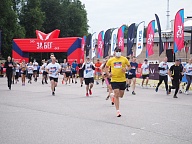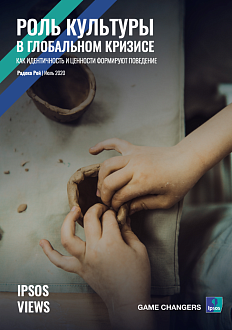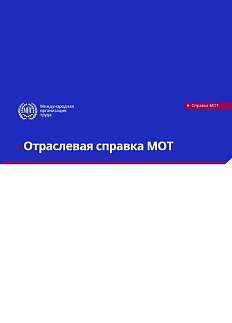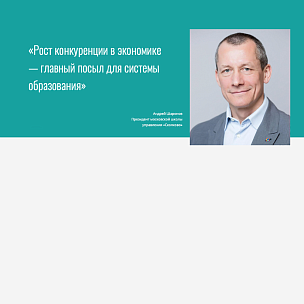How did the pandemic shift priorities to mass sport over high performance athletics? What principles will determine the programme of the next Olympic Games? What makes cybersport an integral part of corporate culture? What is the humanitarian role of sport in the post-COVID world? Why challenges of 2020 need to be factored into the Sport Strategy 2030? Georgy Bryusov, Deputy CEO and Head of Sport, Entertainment and Special Programmes at the Roscongress Foundation, shared his view on these important issues.
Last Sunday, Russia reintroduced mass sporting events: residents of over 80 cities simultaneously joined the Zabeg.RF half marathon. Over 16 thousand participants in Moscow and over 9 thousand in St. Petersburg toed the starting line. The event could have easily brought in over 100 thousand runners. However, a whole number of big cities were unable to join the project due to ongoing restrictions. Participants’ safety first.
The nation-wide half marathon proved how badly people missed real-life communication, the vibe, and offline events that are surely down the road. To a degree, Zabeg.RF united the numerous running clubs and annual events all over the country. ROSCONGRESS RACE events rank high among them and include races as part of the country’s biggest economic forums. Among them are SPIEF RACE around St. Petersburg’s historic centre, EEF RACE in support of the Far East’s endangered species that takes place on the Russky Island in Vladivostok, and the Governors’ Cup on the Formula One track in Sochi.
We target active and passionate people who simply enjoy running, investing in their health and wellbeing. They run together with their families, friends, and even whole companies and tend to spend their time together. A well-organized race has set the trend for the post-COVID era: mass sport is no longer in the shadow of the high-performance sport, it is on the rise. The cost of taking part in the half marathon in Moscow varied between RUB 750 and 4,000 depending on the age group or the timing of the purchase. These running stories illustrate how mass sport is becoming popular. People are ready to pay for their lifestyle, priorities, and prospects, and many athletic disciplines need to embrace this competition and adjust to it.
No sport can develop without a whole army of fans and followers. No sport can make progress without being accessible for all ages. No sport can be commercially successful without efficient work with social networks and media. Government support or special status will hardly be factored in the strategic outlook for sport on national or Olympic level.
In 2013, reforming sport under the slogan ‘Fight 2020! To be continued...’ anticipated the IOC’s Olympic Agenda 2020 that highlighted its work with the audience and creating a viable product. These principles promote athletic disciplines popular among younger generations in the programme of Paris 2024. They include 3×3 basketball, skateboarding, surfing, and break dancing — all them stemming out of various subcultures. Each of those disciplines is backed by a large community and a whole industry. These principles will be the cornerstone for the programme of Los Angeles 2028.
The main half marathon was preceded by a set of online races. Another trend set by the pandemic is using the opportunities offered by online formats for quality communication with the audience. This trend will be only getting stronger. Another proof for this statement is the snowballing growth of cybersport’s popularity. During the pandemic, it became the key platform for collaborations between traditional sport and leading companies. At the same time, it ruins the stereotype that computer games are only meant for generation Z. Cybersport becomes an integral part of corporate culture, which is proven by the successful launch of the Roscongress Cyber Cup. It was held on 1–2 August by Business Priority, Сyber Legacy, and the RC-Sport, the Roscongress Foundation’s sporting platform.
Challenges the sport is facing in 2020 due to the pandemic call for the industry’s comprehensive analysis and a complete revision of the existing approaches to its development.
Challenges that 2020 brought transform both the sport formats and its mission. The coronavirus pandemic will become the turning point for the civilization’s development. It will significantly change the existing relations and the world we have been used to over the last 150 years. Sport, being a breakthrough force that shapes a modern person and their social interactions, found itself at the very brink of post-pandemic decision-making. Yesterday, high-performance sport, alongside its philosophy, marketing, and social appeal was the absolute priority. Today, in times of pandemic-related threats and restrictions, fitness and mass sport, including corporate sport, in various shapes and forms can and should become a strong reason for physical self-preservation and maintaining a high quality of life. It is a proven fact that obesity, diabetes, and cardiovascular diseases are negative factors in severity of COVID-19 regardless of the patient’s age. Sport, a healthy diet, and a healthy lifestyle make up a path forward to fight the viral threat.
All of this call for a comprehensive analysis and embracing the pandemic-related challenges of 2020, which will help efficiently shape Sporting Strategy 2030 and bring it to life. This Strategy is scheduled to be adopted this year and is meant to become the cornerstone document for future development of the industry.





